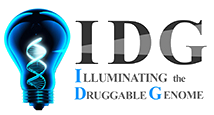Drug results: 14
| metformin | A biguanide hypoglycemic agent used in the treatment of non-insulin-dependent diabetes mellitus not responding to dietary modification. Metformin improves glycemic control by improving insulin sensitivity and decreasing intestinal absorption of glucose. (From Martindale, The Extra Pharmacopoeia, 30th ed, p289) |
|
| glibenclamide | An antidiabetic sulfonylurea derivative with actions similar to those of chlorpropamide. |
|
| glipizide | An oral hypoglycemic agent which is rapidly absorbed and completely metabolized. |
|
| pioglitazone | Pioglitazone is a thiazolidinedione that depends on the presence of insulin for its mechanism of action. Pioglitazone decreases insulin resistance in the periphery and in the liver resulting in increased insulin-dependent glucose disposal and decreased hepatic glucose output. Pioglitazone is not an insulin secretagogue. Pioglitazone is an agonist for peroxisome proliferator-activated receptor-gamma (PPAR-gamma). PPAR receptors are found in tissues important for insulin action such as adipose tissue, skeletal muscle, and liver. Activation of PPAR-gamma nuclear receptors modulates the transcription of a number of insulin responsive genes involved in the control of glucose and lipid metabolism. |
|
| empagliflozin | Empagliflozin is an inhibitor of SGLT2. By inhibiting SGLT2, empagliflozin reduces renal reabsorption of filtered glucose and lowers the renal threshold for glucose, and thereby increases urinary glucose excretion. |
|
| sitagliptin | A pyrazine-derived DIPEPTIDYL-PEPTIDASE IV INHIBITOR and HYPOGLYCEMIC AGENT that increases the levels of the INCRETIN hormones GLUCAGON-LIKE PEPTIDE-1 (GLP-1) and glucose-dependent insulinotropic polypeptide (GIP). It is used in the treatment of TYPE 2 DIABETES. |
|
| canagliflozin | A glucoside-derived SODIUM-GLUCOSE TRANSPORTER 2 inhibitor that stimulates urinary excretion of glucose by suppressing renal glucose reabsorption. It is used to manage BLOOD GLUCOSE levels in patients with TYPE 2 DIABETES. |
|
| alogliptin | a selective, orally bioavailable inhibitor of the enzymatic activity of dipeptidyl peptidase-4 (DPP-4) that slows the inactivation of the incretin hormones, thereby increasing their bloodstream concentrations and reducing fasting and postprandial glucose concentrations in a glucose-dependent manner in patients with type 2 diabetes mellitus |
|
| linagliptin | Linagliptin is an inhibitor of DPP-4, an enzyme that degrades the incretin hormones glucagon-like peptide-1 (GLP-1) and glucose-dependent insulinotropic polypeptide (GIP). Thus, linagliptin increases the concentrations of active incretin hormones, stimulating the release of insulin in a glucose-dependent manner and decreasing the levels of glucagon in the circulation. Both incretin hormones are involved in the physiological regulation of glucose homeostasis. Incretin hormones are secreted at a low basal level throughout the day and levels rise immediately after meal intake. GLP-1 and GIP increase insulin biosynthesis and secretion from pancreatic beta cells in the presence of normal and elevated blood glucose levels. Furthermore, GLP-1 also reduces glucagon secretion from pancreatic alpha cells, resulting in a reduction in hepatic glucose output. |
|
| dapagliflozin | an Sodium-glucose cotransporter 2 (SGLT2) inhibitor, SGLT2 expressed in the proximal renal tubules, is responsible for the majority of the reabsorption of filtered glucose from the tubular lumen, by inhibiting SGLT2, dapagliflozin reduces reabsorption of filtered glucose and lowers the renal threshold for glucose, and thereby increases urinary glucose excretion |
|
| saxagliptin | inhibits Dipeptidyl Peptidase-4 |
|
| rosiglitazone | A thiazolidinedione that functions as a selective agonist for PPAR GAMMA. It improves INSULIN SENSITIVITY in adipose tissue, skeletal muscle, and the liver of patients with TYPE 2 DIABETES MELLITUS. |
|
| liraglutide | An analog of GLUCAGON-LIKE PEPTIDE 1 and agonist of the GLUCAGON-LIKE PEPTIDE 1 RECEPTOR that is used as a HYPOGLYCEMIC AGENT and supplemental therapy in the treatment of DIABETES MELLITUS by patients who do not respond to METFORMIN. |
|
| phenformin | A biguanide hypoglycemic agent with actions and uses similar to those of METFORMIN. Although it is generally considered to be associated with an unacceptably high incidence of lactic acidosis, often fatal, it is still available in some countries. (From Martindale, The Extra Pharmacopoeia, 30th ed, p290) |
|



